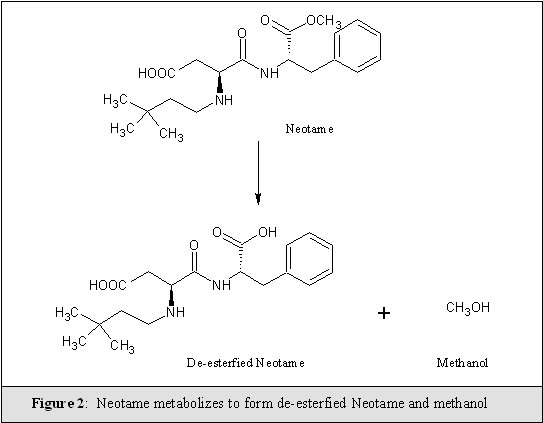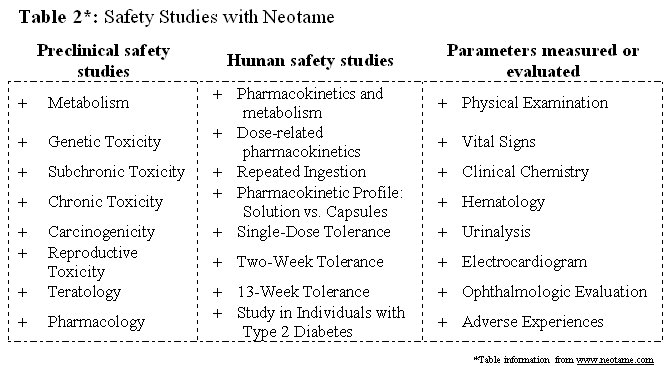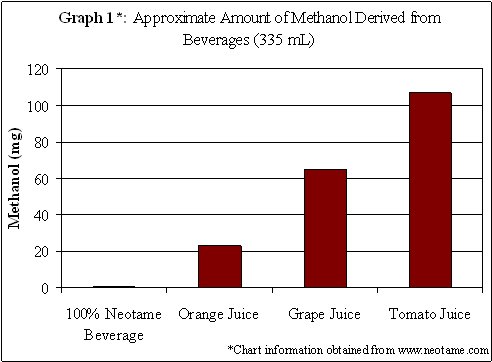safety
On July 9, 2002 after reviewing over 100 studies the Federal Drug Administration (FDA) approved the general use of Neotame. These studies focused on absorption, distribution, metabolism, and excretion in mice, rats, dogs, rabbits, and humans. In humans it was found that 20 - 30% of the administered dose of Neotame is absorbed and rapidly de-esterfied to De-esterfied Neotame (the major metabolite of Neotame, Figure 2) which is then excreted in the urine and feces. The rest of Neotame is unchanged and also rapidly eliminated through the feces and urine and does not accumulate in the body. Findings also concluded that:
| --The amount of methanol that is derived from a single serving of a beverage sweetened with 100% Neotame is very small comparative to other fruit juices, like tomato juice, for example, which produces 200 times the amount of methanol than Neotame (in an equivalent volume of beverage) (Graph 1). |
| -- In preclinical studies, no toxicological effects were observed even with amounts up to 40,000 times the expected daily intake. This high of a dosage is equivalent to consuming one of the following by an adult, every day, for a life time: 50,000 12 oz. cans of beverage that contain Neotame, or 280,000 packets of tabletop sweetener with Neotame, or the sweetness of 1,000 5 lb bags of sugar. |
-- The formation of phenylalanine from normal use of Neotame is so small that people who suffer from the rare condition phenylketonuria will not be affected. |
The results of these studies confirm that Neotame is in fact safe for
the general population which includes diabetics, pregnant and lactating
women, and children. For more information regarding testing trials and
results in Australia go here
Even though Neotame has been approved, not only in the United States, but also in Australia, China, and New Zealand, long term affects are as of yet unknown. Also there are many websites and magazine articles out there that claim that Neotame is extremely bad for human consumption, however they do not give reasons or studies to support such claims.
There are other health concerns which are related
to all artificial sweeteners, according to a SignOnSanDiego.com article,
is that people think that because most sweeteners are non-nutritive
they can eat twice to three times as much of the same foods. Also this
makes it so that people are more tempted to go for the cookie with the
non-nutritive sweetener than fruit which may carry the same amount of
calories but also contains good vitamins and fiber.


